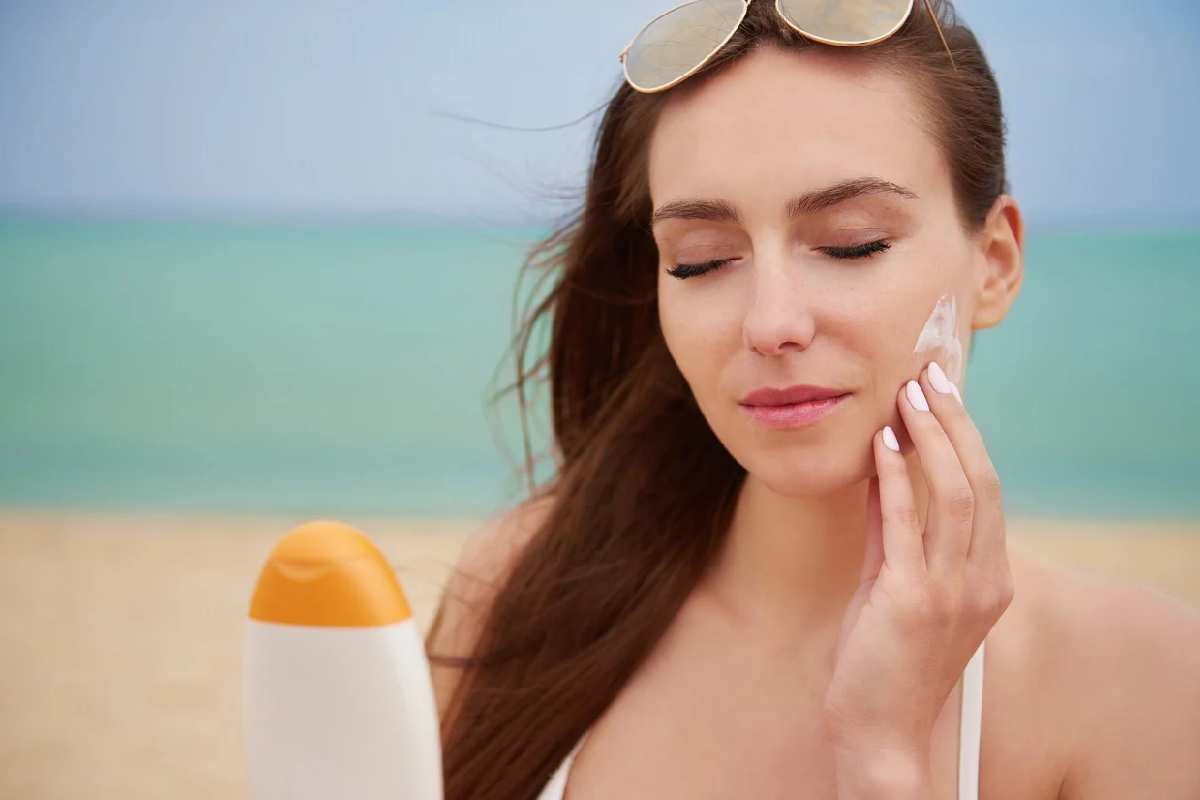When it comes to sun protection, there’s a growing interest in mineral sunscreens, especially among those with sensitive skin, and anyone looking for a more natural approach to skincare. Similarly to chemical sunscreens, which work by absorbing UV rays, mineral sunscreens do this 95% of the time, with the other 5% of rays being reflected away. In this post, we’ll explore why mineral sunscreen—particularly zinc oxide sunscreen—is becoming a preferred option for many.
Table of Contents
1. Gentle on Sensitive Skin
One of the main reasons people choose mineral sunscreen is its gentle nature. Mineral sunscreens typically contain active ingredients like zinc oxide and titanium dioxide, which are naturally soothing ingredients in comparison to some chemical filters.
If you have sensitive or reactive skin, chemical sunscreens can sometimes lead to irritation. This is especially common around the delicate areas of the face, such as the eyes and mouth. Mineral sunscreens, on the other hand, are non-irritating and are often recommended by dermatologists for people with conditions like eczema, rosacea, or acne.
Zinc oxide sunscreen, in particular, is known for its calming and soothing properties. Zinc oxide has anti-inflammatory qualities, making it a great choice for individuals with sensitive or acne-prone skin. Because it sits on top of the skin rather than being absorbed, it’s far less likely to cause irritation or trigger breakouts.
2. Protection from UVA and UVB Rays
Mineral sunscreens are broad-spectrum, meaning they protect against both UVA and UVB rays. UVA rays are responsible for skin ageing and long-term damage, while UVB rays cause sunburn. Both types of radiation can contribute to skin cancer, so it’s crucial to use a sunscreen that guards against both. Zinc oxide sunscreen is highly effective at blocking the full spectrum of UV rays, making it one of the best options for comprehensive protection.
3. Less Likely to Clog Pores
A great reason that someone might opt for a mineral sunscreen is if they have acne or oily skin. Mineral sunscreens are often non-comedogenic, meaning they are less likely to clog pores, reducing the chance of breakouts, which makes them a good option for people prone to acne.
4. Ideal for Post-Procedure Skin
Mineral sunscreens are often recommended for people recovering from skin treatments, like laser procedures or chemical peels, as they are less likely to irritate or inflame healing skin.
5. Suitable for All Ages
Mineral sunscreens are generally safe for use on babies and young children because they are gentler on the skin and less likely to cause irritation, unlike some chemical sunscreens with harsher ingredients.
For those with sensitive skin, or oily skin, mineral sunscreen is an excellent choice. Zinc oxide sunscreen offers broad-spectrum UV protection, and is gentle enough for all skin types, making it a top contender for those seeking the best in sun care. While chemical sunscreens have their advantages, mineral sunscreens stand out for their gentle on-the-skin nature. Whether you’re lounging by the pool, hiking, or just going about your day, a high-quality mineral sunscreen can help keep your skin safe, healthy, and irritation-free.

